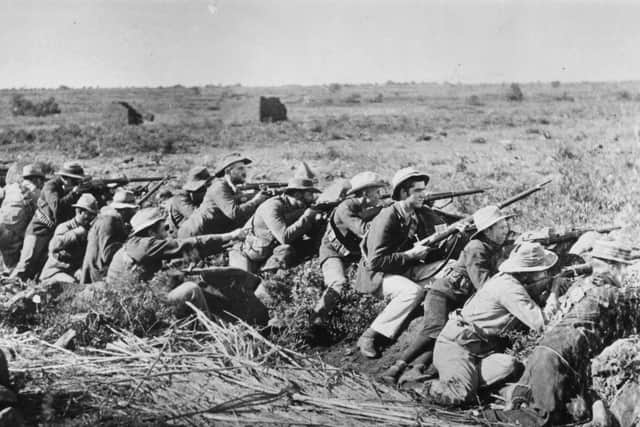James Thompson Bain: A Scottish socialist hero or a racist villain? – Kenny MacAskill
But what of James Thompson Bain, born in Dundee in 1860, and the subject of Hyslop’s book? As with many, he joined the army to escape poverty, lying about his age and enlisting when 16. Serving in Africa, he fought in the Zulu wars before returning to Scotland and becoming a skilled engineer. In that new role, he became an activist in the Engineering Union and the fledgling socialist movement.
When unemployment rose, he emigrated to South America, then South Africa. The Transvaal became his adopted land and when war with the British Empire broke out, he fought with the Boers against his former comrades. Captured at one stage, he faced being charged with treason and execution, but his Transvaal citizenship was accepted and he was instead imprisoned in Ceylon.
Advertisement
Hide AdAdvertisement
Hide AdReleased when the conflict ended and returning to his adopted land, he became a trade union leader and one of the founders of the first socialist party in southern Africa. When major strikes occurred in 1914, he was deported to Britain where he was feted by British Labour leaders. Returning to his adopted land once again, he died there in 1919.


But what are we to make of him? Sympathy for the Boers was shared by Keir Hardie and the broader Labour movement. More complex is that he represented “white labourism”. His and his colleagues were long before the apartheid system that institutionalised racism, but this wasn’t a brotherhood of man. The union and party were for whites only.
But it wasn’t just a South African policy but one that applied across the British Empire, and indeed elsewhere, whether in the USA or France. Much came in from Australia and such views were often shared in Britain.
Segregation and racism are to be condemned. He certainly isn’t to be equated with apartheid politician John Vorster or his ilk. Was he any different from revered Labour leaders in Britain or his fellow Scot Andrew Fisher, the Australian PM at the time? Whether he’s a hero or a villain depends, I suppose, if he’s to be judged by contemporary standards or those of his time.
Comments
Want to join the conversation? Please or to comment on this article.
